Cathars
Interview with Jeanne D'Aout: New book with Otto is out
Q: It’s nice to meet you again. Congratulations on your new book!
The new book, The Eye of Ra, also features Otto Rahn. I know every new book is always a breakthrough for a real writer. What was your main finding?
A: My most important discovery while writing my second book, ‘The Eye of Ra’, is the incredible experience of having lots of questions and finding out as soon as I started writing, that I had the answers already within me. Writing activates something in the brain that helps you understand certain things that are normally difficult to understand. Writing ‘The Eye of Ra’ took me back to ancient Egypt, where I set myself the quest of discovering the identity of the Biblical divination stones known as the Urim and Thummim, and to understand the psyche behind the heretical Pharaoh Akhenaten.
Otto Rahn's Crusade Against the Grail
William Henry talks to Christopher Jones, who has translated one of the legendary ?hidden? books of our time, Otto Rahn's Crusade Against the Grail. Although Rahn wrote in 1933, it has taken 73 years for it to be published in English. Find out why, then listen to possible Sasquatch cries thanks to the intrepid Linda Moulton Howe!
Otto Rahn y la Búsqueda Nazi por el Secreto de los Cátaros
La Berlin de entreguerras era una ciudad conocida en toda Europa por su sub-cultura bohemia y sus jovenes intelectuales. Entre los personajes que ardientemente celebraban los abundantes «ismos» que estaban fracturando las viejas certezas ideologicas, las cuales habian compactado el siglo XIX, pocos individuos eran mas coloridos que un joven de ojos verdes y cabellos oscuros llamado Otto Rahn. Su figura delgada, envuelta en un caracteristico abrigo negro y sombrero tiroles, arrojaba una larga sombra desde esos anos sombrios, una «gran silueta» alrededor de la cual se han acumulado los mitos mas extravagantes. El fue considerado igualmente como mason, rosacruz, luciferino, y un agente de la Sociedad Thule. Como lo plantea el autor Phillip Kerr, los contemporaneos de Rahn no se habrian sorprendido de ver «la Dama Escarlata y la Gran Bestia salir volando desde la puerta del frente» de su apartamento en Tiergartenstrasse. Uno de sus companeros de la Orden Negra de Heinrich Himmler comento en un memorandum interno que el «medio sospechaba que Rahn tenia relaciones con el pueblo pequeno».
Est-ce une nouvelle «ruee vers l'or»?
Sous la conduite d'un Allemand une troupe de "Polaires" se livrent à des fouilles dans la région de Massat.
Nous avions signalé - nos lecteurs se le rappellent peut-être, ceux du moins que la chose intéresse le séjour, l'été dernier, dans la haute Ariège d'une bande de visiteurs étrangers appartenant à une Société théosophique dont le siège est à Paris (avneu Rapp): les Polaires.
Il serait trop long d'exposer en détail aujourd hui l'origine et le but de cette société, bién connue d'ailleurs dans les cercles théosophiques en France et à l'étranger, principalement en Angleterre.
Que venaient faire cet été les Polaires en Ariege? Nous l'avons dit à l'époque et nous avons précisé de nouveau, ces temps derniers, à l'occasion des fouilles pratiquées au chateau de Montségur: leur objectif est de rechercher les tresors, qui ont pu être abandonnés par les Albigeois, au treizième siècle, dans les ruines des châteaux-forts et dans les grottes, et surtout de découvrir les vestiges de la relique cathare, entre autres ce fameux évangile de saint Barthélemy... dont certains affirment que des copies se trouveraient à Londres, au Bristish Museum.
В поисках утраченного Грааля
Берлин между мировыми войнами был городом, известным по всей Европе своей богемной субкультурой молодых интеллектуалов. Среди лиц, которые горячо обсуждали много модернистских "измов", которые ломали старые идеологические определения, что склеивали 19-ое столетие, немногие были более колоритными, чем этот темноволосый, зеленоглазый молодой человек по имени Отто Вильгельм Ран. Его худая фигура, одетая в характерный черный плащ и фетровую шляпу, бросает длинную тень из тех сумеречных лет, ‘великий силуэт’, вокруг которого вращались самые невероятные мифы. Он, как говорили, был Масоном, Розенкрейцером, Люциферианцем, посланцем Общества Туле, посвященным Катаром и даже руководителем некоего неизвестного международного тайного общества.
Lachrymae, Chapter IV: The Final Chapter
An Online Journal by Richard Stanley<
(Originally appeared in R. S.' MySpace<, December 9th, 2007.)
Brethren, I have invited you here to this ancient, invisible theatre with the intention of not only unmasking the killer God responsible for these crimes against 'reality', but more cogently, to provide an unambiguous solution to two or perhaps three long running esoteric enigmas!
I salute those who have stayed with the program from the top. For late joiners I include an index to conjure order out of the scrolling chaos and serve as an aid memoir for those hardy few who dare read further. I have very little keyboard time at present and less in the months to come. Until we meet again this strange saga is my gift to you.
Be warned the completed text contains 'spoilers' and may be hazardous to your belief systems.
Otto Rahn Memorial Website interview with Jeanne D'Août, the Author of White Lie
Hi, Jeanne!
I congratulate you on the release of your book White Lie. This is a great event for all who are familiar with the work, searching and life of Otto Wilhelm Rahn. When did you first hear of him?
Jeanne:
The first time I heard of Otto Rahn was probably during my research of the history of Montségur and the Cathars in connection with Grail lore. I never studied the man himself and only knew what most people know; that he researched Grail lore, visited Montségur and was working for Himmler as a relic hunter in a pre-war Germany. It wasn't until 2008 that a friend sent me "Crusade against the Grail" in English, followed by "Lucifer's Court" and Nigel Graddon's "Otto Rahn, Quest for the Holy Grail". I was thinking of writing a thriller book at that time about the 1st century, and the mysteries of the Languedoc. I had already done a lot of research for the book, but didn't get around to actually writing it, because the financial crisis had made me and my husband work 7 days a week to make a living. In 2011 I first had the chance to sit down properly and started writing in January. I would write almost 18 to 20 hours a day for several months and Otto slowly became one of the key players in the book.

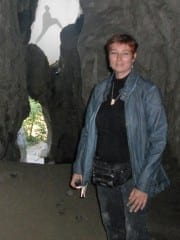
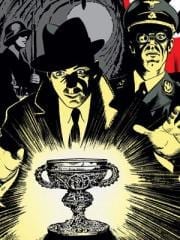
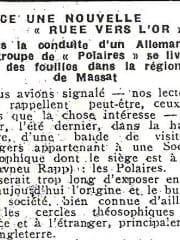
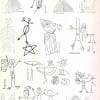
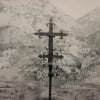

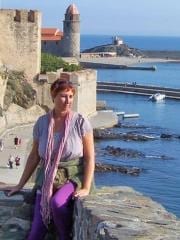
Neueste Kommentare
vor 12 Jahre 40 Wochen
vor 12 Jahre 41 Wochen
vor 12 Jahre 41 Wochen
vor 12 Jahre 41 Wochen
vor 12 Jahre 44 Wochen
vor 12 Jahre 50 Wochen